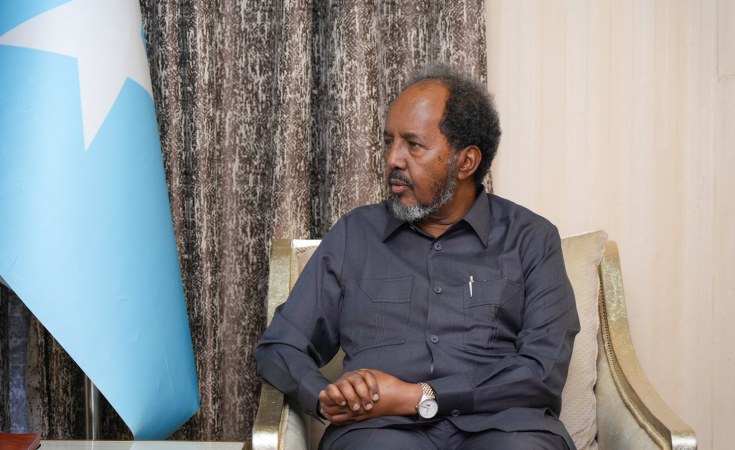Mogadishu, Somalia — In a move that has sparked controversy and diplomatic tension, Somali Foreign Minister Ahmed Moalim Fiqi has strongly criticized UK Ambassador to Somalia, Mike Nithavrianakis, for remarks he described as "a blatant attack on Somalia's sovereignty and unity."
The diplomatic row emerged after Ambassador Nithavrianakis made comments on X (formerly Twitter), which Minister Fiqi perceived as undermining the territorial integrity of Somalia.
The controversy centers around a social media post by Ambassador Nithavrianakis, in which he expressed pride in the UK's support for the work of the HALO Trust in both Somalia and Somaliland.
"The UK is proud to support the fantastic work of the HALO Trust in Somalia and Somaliland (and elsewhere around the world)," The UK Ambassador to Somalia, Mike Nithavrianakis wrote on X [formerly Twitter] after a meeting with HALO's Regional Director and new Country Director.
The post, which seemingly recognized Somaliland as a separate entity from Somalia, drew immediate backlash from Somali officials.
Minister Fiqi did not mince words in his response, condemning the ambassador's remarks as unacceptable.
"The fragmentation of a unified entity and its reclassification under two distinct names is utterly unacceptable and constitutes a blatant attack on the sovereignty and unity of Somalia," Fiqi declared.
His statement reflects the Somali government's longstanding stance on the issue of Somaliland, which declared independence from Somalia in 1991 but remains internationally unrecognized as a sovereign state.
The HALO Trust, a UK-based charity renowned for its work in demining and explosive ordnance disposal, has been operating in the region since 1999. The organization plays a crucial role in ensuring the safety of communities in both Somalia and Somaliland, particularly in areas heavily affected by decades of conflict.
In southern Somalia, HALO's work focuses on surveying and marking hazardous areas to protect civilians from unexploded ordnance. In Somaliland, the organization has cleared thousands of hectares of land, facilitating the return of displaced communities and the revival of agricultural activities.
This incident comes at a sensitive time for Somalia, which is grappling with multiple national security threats. In June, the Somali government approved a resolution outlining key security concerns, including terrorism, separatism, state fragility, open borders, foreign interference, climate change, cybersecurity risks, and social crises.
Somalia's history has been marked by decades of political instability, civil war, and fragmentation. After gaining independence in 1960, Somalia faced internal divisions and conflicts that eventually led to the collapse of the central government in 1991. In the same year, Somaliland, located in the northwest of the country, declared its independence from Somalia.
Despite establishing its own government and institutions, Somaliland has not been recognized by the international community, including the United Nations and the African Union.
Somalia's central government, with its capital in Mogadishu, has consistently rejected Somaliland's claims of independence, viewing the region as an integral part of its territory. The issue of Somaliland remains one of the most contentious and unresolved aspects of Somalia's political landscape.
The United Kingdom has long been a significant player in Somalia, providing humanitarian aid, supporting peacebuilding efforts, and contributing to the country's development.
Abdirazak Gesey, is a journalist in Mogadishu covering humanitarian issues, social life, politics, and breaking news.


